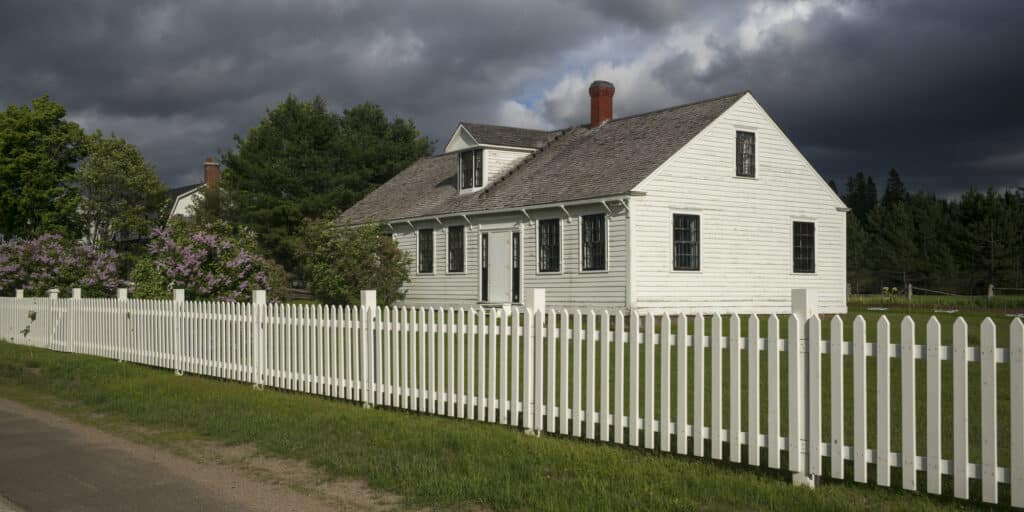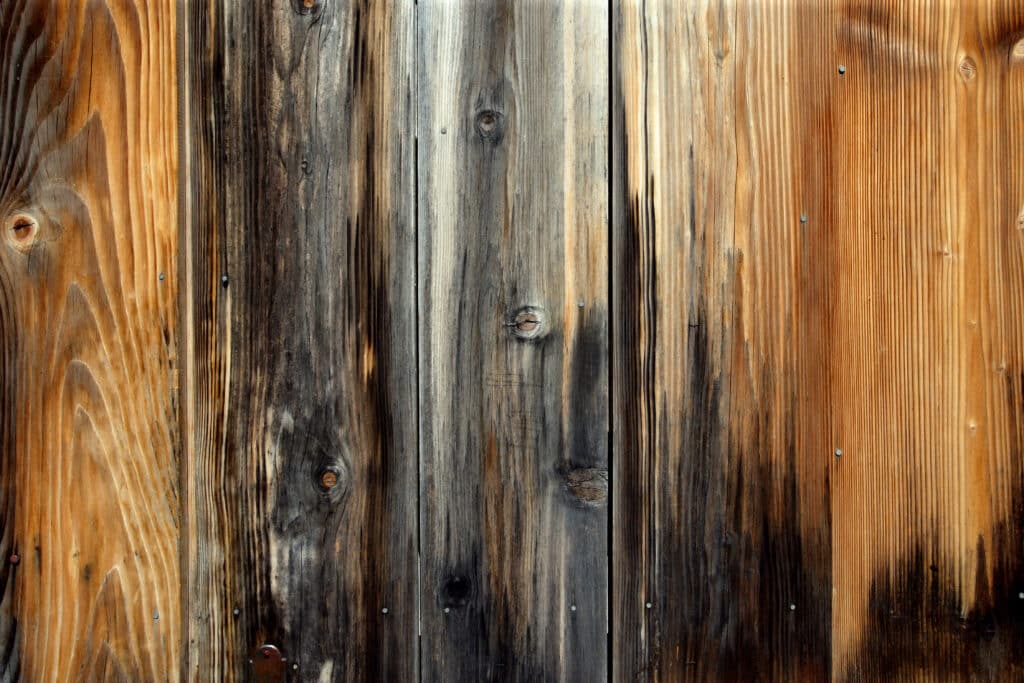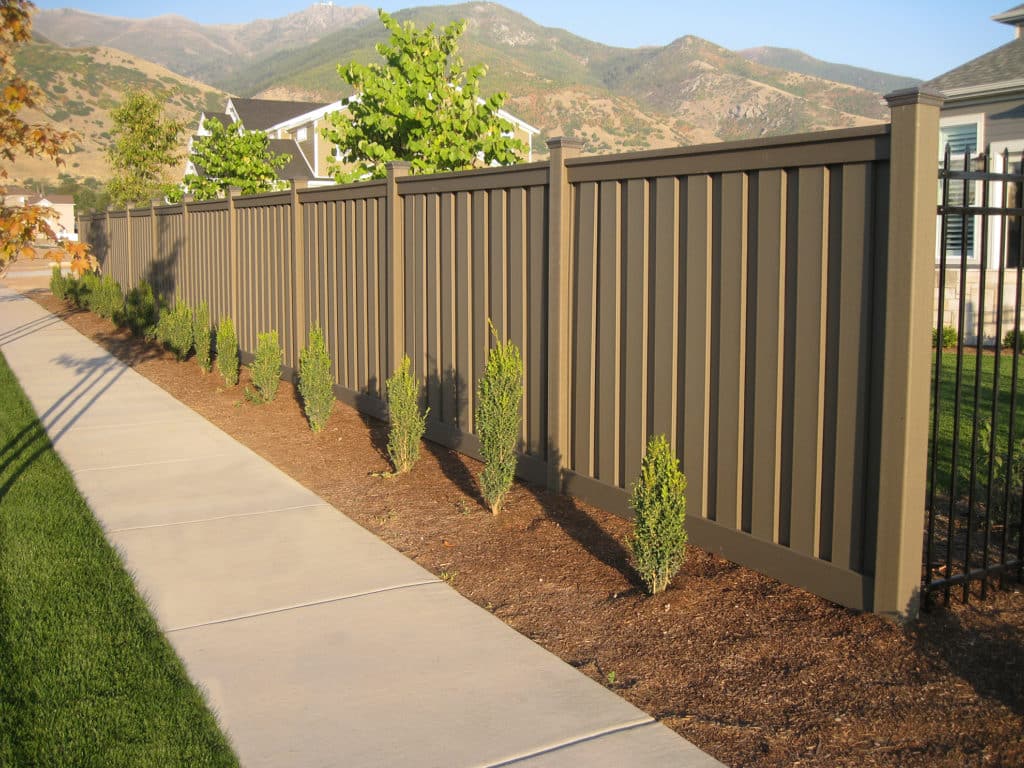Regular fence maintenance is vital to prevent rain damage and ensure the longevity of your property’s boundaries. Rainwater can cause common issues like rot, mold, and warping in wooden fences, while metal fences may suffer from rust and corrosion. Neglecting maintenance can lead to structural weaknesses, compromising security and aesthetics. By inspecting, cleaning, and repairing fences regularly, homeowners can mitigate these risks, prolonging the lifespan of their fences and preserving the overall integrity of their property.
This blog will help homeowners understand the impact of rain and water on fences, installation techniques, and give practical tips to protect their fences against rain damage. To begin, homeowners should understand the impact of rain on fences.

Understanding the Impact of Rain on Fences
Rainwater can damage different fencing materials in various ways. Wooden fences are susceptible to mold, rot, and warping when exposed to moisture, which compromises their structural integrity. Metal fences can corrode and rust over time due to prolonged exposure to rain, leading to weakening and deterioration. Vinyl fences may experience discoloration, warping, or cracking if not properly maintained in rainy conditions. No matter what type of fence you have, they are susceptible to being damaged, which is why choosing the right materials for your fence is essential.
Choosing the Right Fencing Materials to Prevent Rain Damage
When selecting fencing materials for rainy climates, consider factors such as moisture resistance, durability, and ease of maintenance. Opt for weather-resistant materials like vinyl, aluminum, or pressure-treated wood, which are less prone to rot and corrosion. Additionally, protective treatments can be applied to the fences to enhance durability and prolong the lifespan of the fence in rainy conditions.
Proper Installation Techniques
Correct installation of fences is essential for preventing water infiltration and damage, ensuring the long-term integrity of the structure. Properly installed fences create a barrier that minimizes moisture penetration, reducing the risk of water issues. To achieve this, the fence posts should be securely anchored into the ground at the appropriate depth and spacing to withstand soil shifting and environmental stressors. Additionally, quality materials should be used to assemble the fence panels to ensure tight connections and minimal gaps where water can seep through.
Adequate drainage around the fence perimeter is also crucial to prevent water accumulation, which can accelerate deterioration. To facilitate proper drainage, the ground should be sloped away from the fence line to direct water away from the fence. Installing gravel or a French drain along the base of the fence can also further enhance drainage and prevent water pooling. Make sure to regularly inspect the fence and surrounding area for signs of water accumulation or damage, and promptly address any issues to maintain the fence’s effectiveness and longevity.

Routine Maintenance Practices
Routine maintenance is key to preventing rain damage and extending the lifespan of a fence. Homeowners can implement several practices to keep their fences in optimal condition:
Regular Inspections: Conduct periodic inspections to check for signs of damage, like rot, mold, warping, or loose components.
Cleaning: Clean the fence regularly to remove dirt, debris, mold, and mildew buildup using a mild detergent or specialized cleaner.
Repairs: Promptly repair any damage identified during inspections, such as loose boards, broken hardware, or damaged sections, to prevent further deterioration.
Sealing and Waterproofing: Apply a waterproof sealant, stain, or paint to wooden fences to protect them from moisture and UV damage. Reapply as needed according to the manufacturer’s recommendations.
Rust Prevention: For metal fences, inspect for signs of rust or corrosion and apply a rust-resistant coating or primer to protect against moisture damage.
Vegetation Management: Trim back vegetation and bushes near the fence line to prevent moisture buildup and minimize contact with the fence, reducing the risk of damage.
Seasonal Precautions: Take seasonal precautions such as winterizing wooden fences to protect them from frost and moisture during colder months.
By incorporating these routine maintenance practices into their regular home care routine, homeowners can effectively prevent rain damage and preserve the integrity of their fences for years to come.

Choose Bronco Fence for Quality Fencing
Overall, it is important to periodically check on your fence during the rainy season to keep it protected and prevent rain damage. Bronco Fence knows that Utah weather can be unpredictable, which is why we provide the highest quality fencing materials for residents. We offer several types of fencing materials, including vinyl, aluminum, and wood. We are meticulous in our installation process to guarantee the fence holds up in all weather conditions. Contact us today to learn more about our fence installation services and get yours ordered.

